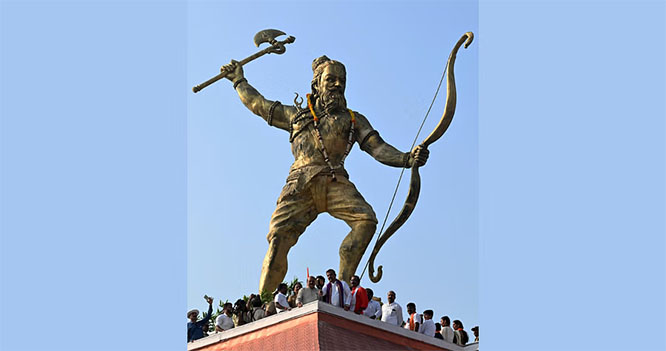
The issue assumes importance as questions were raised on its 1995 verdict which held that vote in name of "Hindutva/ Hinduism" did not prejudicially affect any candidate and since then three election petitions are pending on the subject before the apex court.
The apex court's three-judge bench in 1995 had held that "Hindutva/Hinduism is a way of life of the people in the sub-continent" and "is a state of mind."
The judgement was delivered in the case of Manohar Joshi versus N B Patil which was authored by Justice J S Verma who found that statement by Joshi that "First Hindu State will be established in Maharashtra did not amount to appeal on ground of religion."
The observation was made while dealing with the question regarding the scope of corrupt practices mentioned in sub-section (3) of Section 123 of the 1951 Representation of People Act.
The issue for interpretation of sub-section (3) of Section 123 of the Act once again had come on January 30 (Friday) before a five-judge headed by Justice R M Lodha which referred it for examination before a larger bench of seven judge which will be constituted by chief justice P Sathasivam.
The bench, also comprising justices A K Patnaik, S J Mukhopadhaya, Dipak Misra and F I M Kalifulla was dealing with the appeal filed in 1992 by BJP leader Abhiram Singh, whose election to 1990 Maharashtra Assembly was set aside in 1991 by the Bombay High Court.
A three-judge bench on April 16, 1992 had referred Singh's appeal in which the same question and interpretation of sub-section (3) of Section 123 of the Act was raised to a five-judge Constitution Bench.
While the five-judge bench was hearing this matter on January 30, it was informed that the identical issue was raised in the election petition filed by one Narayan Singh against BJP leader Sunderlal Patwa and the apex court's another Constitution Bench of five Judges has referred a larger Bench of seven Judges.







Comments
Add new comment